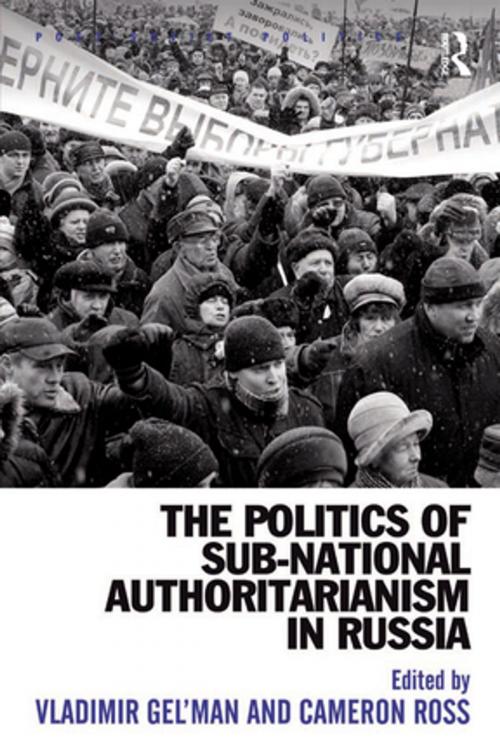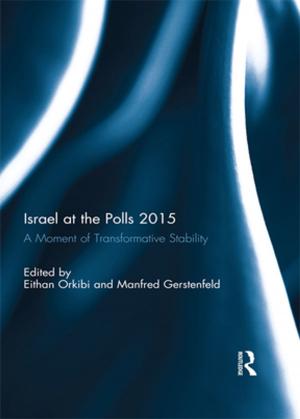The Politics of Sub-National Authoritarianism in Russia
Nonfiction, Social & Cultural Studies, Political Science| Author: | Cameron Ross | ISBN: | 9781317019985 |
| Publisher: | Taylor and Francis | Publication: | February 24, 2016 |
| Imprint: | Routledge | Language: | English |
| Author: | Cameron Ross |
| ISBN: | 9781317019985 |
| Publisher: | Taylor and Francis |
| Publication: | February 24, 2016 |
| Imprint: | Routledge |
| Language: | English |
By the end of the 2000s Russia had become an increasingly authoritarian state, which was characterised by the following features: outrageously unfair and fraudulent elections, the existence of weak and impotent political parties, a heavily censored (often self-censored) media, weak rubber-stamping legislatures at the national and sub-national levels, politically subordinated courts, the arbitrary use of the economic powers of the state, and widespread corruption. However, this picture would be incomplete without taking into account the sub-national dimension of these subversive institutions and practices across the regions of the Russian Federation. After the collapse of the Soviet Union, sub-national political developments in Russia became highly diversified and the political map of Russia’s regions became multi-faceted. The period of 2000s demonstrated a drive on the part of the Kremlin to re-centralise politics and governance to the demise of newly-emerging democratic institutions at both the national and sub-national levels. Yet, federalism and regionalism remain key elements of the research agenda in Russian politics, and the overall political map of Russia’s regions is far from being monotonic. Rather, it is similar to a complex multi-piece puzzle, which can only be put together through skilful crafting. The 12 chapters in this collection are oriented towards the generation of more theoretically and empirically solid inferences and provide critical evaluations of the multiple deficiencies in Russia’s sub-national authoritarianism, including: principal-agent problems in the relations between the layers of the ’power vertical’, unresolved issues of regime legitimacy that have resulted from manipulative electoral practices, and the inefficient performance of regional and local governments. The volume brings together a team of international experts on Russian regional politics which includes top scholars from Britain, Canada, Russia and the USA.
By the end of the 2000s Russia had become an increasingly authoritarian state, which was characterised by the following features: outrageously unfair and fraudulent elections, the existence of weak and impotent political parties, a heavily censored (often self-censored) media, weak rubber-stamping legislatures at the national and sub-national levels, politically subordinated courts, the arbitrary use of the economic powers of the state, and widespread corruption. However, this picture would be incomplete without taking into account the sub-national dimension of these subversive institutions and practices across the regions of the Russian Federation. After the collapse of the Soviet Union, sub-national political developments in Russia became highly diversified and the political map of Russia’s regions became multi-faceted. The period of 2000s demonstrated a drive on the part of the Kremlin to re-centralise politics and governance to the demise of newly-emerging democratic institutions at both the national and sub-national levels. Yet, federalism and regionalism remain key elements of the research agenda in Russian politics, and the overall political map of Russia’s regions is far from being monotonic. Rather, it is similar to a complex multi-piece puzzle, which can only be put together through skilful crafting. The 12 chapters in this collection are oriented towards the generation of more theoretically and empirically solid inferences and provide critical evaluations of the multiple deficiencies in Russia’s sub-national authoritarianism, including: principal-agent problems in the relations between the layers of the ’power vertical’, unresolved issues of regime legitimacy that have resulted from manipulative electoral practices, and the inefficient performance of regional and local governments. The volume brings together a team of international experts on Russian regional politics which includes top scholars from Britain, Canada, Russia and the USA.















